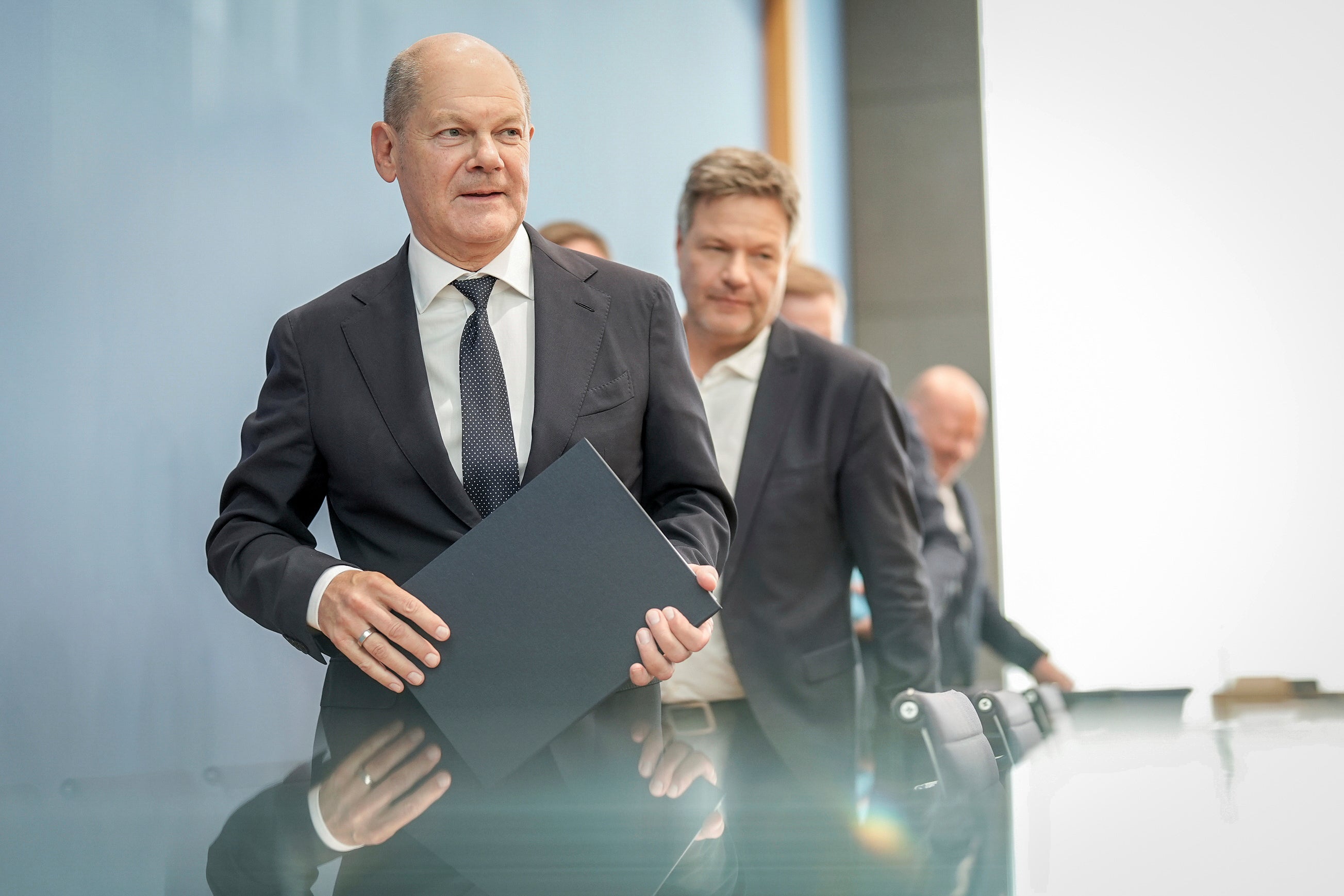German government averts crisis with budget agreement for Europe’s largest economy
The German government has announced an agreement on its budget for 2025 and a stimulus package for Europe’s largest economy, easing a monthslong squabble that threatened to upend Chancellor Olaf Scholz’s center-left coalition

Your support helps us to tell the story
From reproductive rights to climate change to Big Tech, The Independent is on the ground when the story is developing. Whether it's investigating the financials of Elon Musk's pro-Trump PAC or producing our latest documentary, 'The A Word', which shines a light on the American women fighting for reproductive rights, we know how important it is to parse out the facts from the messaging.
At such a critical moment in US history, we need reporters on the ground. Your donation allows us to keep sending journalists to speak to both sides of the story.
The Independent is trusted by Americans across the entire political spectrum. And unlike many other quality news outlets, we choose not to lock Americans out of our reporting and analysis with paywalls. We believe quality journalism should be available to everyone, paid for by those who can afford it.
Your support makes all the difference.The German government said Friday it has reached agreement on the budget for 2025 and a stimulus package for Europe’s largest economy, easing a monthslong squabble that threatened to upend Chancellor Olaf Scholz’s center-left coalition.
Scholz, a Social Democrat, and leaders of the Free Democrats and Greens reached agreement on plans including higher spending on defense and affordable housing after marathon talks that dragged into the early hours of Friday. Scholz said ministers would formally approve the plan at a Cabinet meeting later this month.
By balancing security, social cohesion and economic growth, Scholz said the budget was designed to reassure citizens unsettled by the war in Ukraine, the impacts of climate change and irregular migration, and offer an alternative to the “divisive” policies of far-right parties making gains across Europe.
“We don’t need ‘either-or’ politics,” Scholz said. “We need support for Ukraine and stable pensions, the modernization of industry and affordable energy, a strong army and good roads and stable bridges.”
Scholz replaced long-serving conservative Chancellor Angela Merkel after federal elections in 2011, heading a coalition built around a program of modernization and digitalization in areas including climate protection, infrastructure and research.
To help pay for it, the administration sidestepped rules limiting public borrowing by repurposing 60 billion euros ($65 billion) in unspent emergency credits raised for measures to soften the impact of the COVID-19 pandemic.
But that maneuver was ruled illegal in November 2023 by the Federal Constitutional Court, prompting a government scramble to seek spending cuts in areas from farm subsidies to overseas development aid.
The squeeze opened rifts within the Social Democrats and between the financially conservative Free Democrats and the environmentalist Greens, with the latter calling for parliament to suspend the so-called “debt brake” and allow more emergency borrowing, including to keep supporting Ukraine in its war with Russia.
The disagreements had fueled speculation that the already unpopular government could collapse and prompt a snap parliamentary election in which Germany could follow other European countries by swinging toward the political right.
Opposition leaders said Friday they were skeptical of the government's budget arithmetic, especially its ability to fund an expanded defense budget, and forecast that coalition partners would fall out again over the details.
Friedrich Merz, Merkel’s successor at the helm of the Christian Democratic Union, dismissed the deal as “a truce for an exhausted coalition. ... When we return in September from the parliamentary break, then the arguments will really get going.”
Scholz, however, said the coalition leaders had thrashed out a budget that respected the borrowing limits while still funding priority areas for all three parties.
To support economic growth, the government plans to create incentives for investment, including by allowing companies to write down the value of assets more quickly, support for research and development, reduce bureaucracy and promote the development of renewable energy.
Scholz also said the government would continue to meet the NATO target of spending at least 2% of GDP on defense, even after his defense minister failed to push through a sharper increase. Germany is the second-largest provider of arms to Ukraine behind the United States.
“Germany must be an anchor of stability in Europe," he said. "As a country at the heart of the continent with strategic importance, economic power and political weight, we must not turn away from the world.”